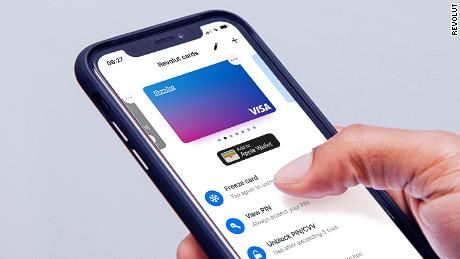Forget piggy banks. Kids are using mobile apps for pocket money

To reflect this trend, a flurry of mobile budgeting apps for children has sprung up worldwide: GoHenry, Osper and Gimi to name a few. These apps offer a simple money management service for children, often for a monthly subscription fee paid by the parents. Parents can add money to children’s accounts, set limits and monitor transactions, while children can choose to save their money or spend it using a prepaid card that works like a debit card. The apps suggest minimum ages ranging from six to nine for the prepaid card. Set to join the pocket money market is the digital bank Revolut, with its upcoming launch of Revolut Youth for seven to 18-year-olds. Parents who are already Revolut customers will be able to add their children to their account as secondary users, each with their own personal debit card. Parents can monitor the child’s account through their existing app, while kids can download their own child-friendly version. Initial testing has begun, with the dedicated app for kids expected to become available in the United Kingdom in the first quarter of 2020. Spend responsibly The companies behind the apps argue that in an increasingly cashless society, they can be a valuable way of teaching young children about money.Two thirds of adults globally are financially illiterate, according to Standard & Poor’s Global Financial Literacy Survey, and one in four teenagers are unable to make even simple decisions on everyday spending.These apps aim to overcome this, claiming to teach children financial concepts, such as budgeting, interest rates and income.For instance, the Swedish app Gimi -— with 1.2 million users globally — has virtual savings jars where children can deposit money; parents can pay children interest as they save; and there is a chores feature, where parents can pay children for completing household tasks. The account is attached to a prepaid card that is currently available in Sweden only, but expected to launch elsewhere in Europe in 2020. “Cash was the best way to teach financial literacy because it’s so tangible and so easy to grasp,” Philip Haglund, CEO of Gimi, tells CNN Business. “Now money is being transferred through some kind of cyberspace, which is really abstract and hard for anyone to understand.”Haglund believes the app can teach responsible spending habits, whereas schools tend to focus more on economic theory. “You don’t become better at money management just because you have a degree in economics. It’s more about the attitude and the relationship you have with parents’ money when you’re six to 12 years old,” he says.But Catherine Winter, managing director of financial capability at The London Institute of Banking and Finance, warns that while digital tools can help there needs to be a more structured approach to financial education. The area should “have regular, dedicated, classroom time and ideally should be taught as a standalone subject,” she said. “Children would then have the right context and foundation to get the most out of both the apps and their money.”A lucrative generation The growth of digital banking has affected how parents doll out pocket money, with one in three parents in the United Kingdom doing it digitally, according to a recent report by the financial comparison website Money.co.uk. As a whole, kids aged 13-19, are estimated to contribute £1.7 billion ($2.2 billion) into the UK economy each year, according to the Teenage Finance Report from financial services providers OneFamily.”There’s a big opportunity,” Aurelian Guichard, the product owner for Revolut Youth, tells CNN Business. “We have an app for adults … so we will be able to build a transition from being a Revolut Youth user to becoming a normal user.”This could translate to customers for life, as according to the UK’s Competition and Markets Authority only 3% of personal customers switch to a different bank in any year. Encouraging spending or debt?One concern is that introducing digital money apps to young children could help to encourage irresponsible spending habits. “If children don’t have a good foundation in financial capability, there’s a risk that money apps could be seen as just another game,” says Winter. “There’s a risk that they won’t learn about the real value of money and might develop bad money habits.”However, Haglund says children are protected from this as parents can monitor their spending habits and none of the services offer an overdraft so children cannot go into debt. Plus, it is important for kids to learn and make mistakes, says Guichard. “We want to help kids and teenagers gain financial skills for life, and the earlier you do that the better, because if you’re going to make a mistake of £10 at eight, it’s better than making a mistake of £1,000 when you’re when you’re 28,” he says.




